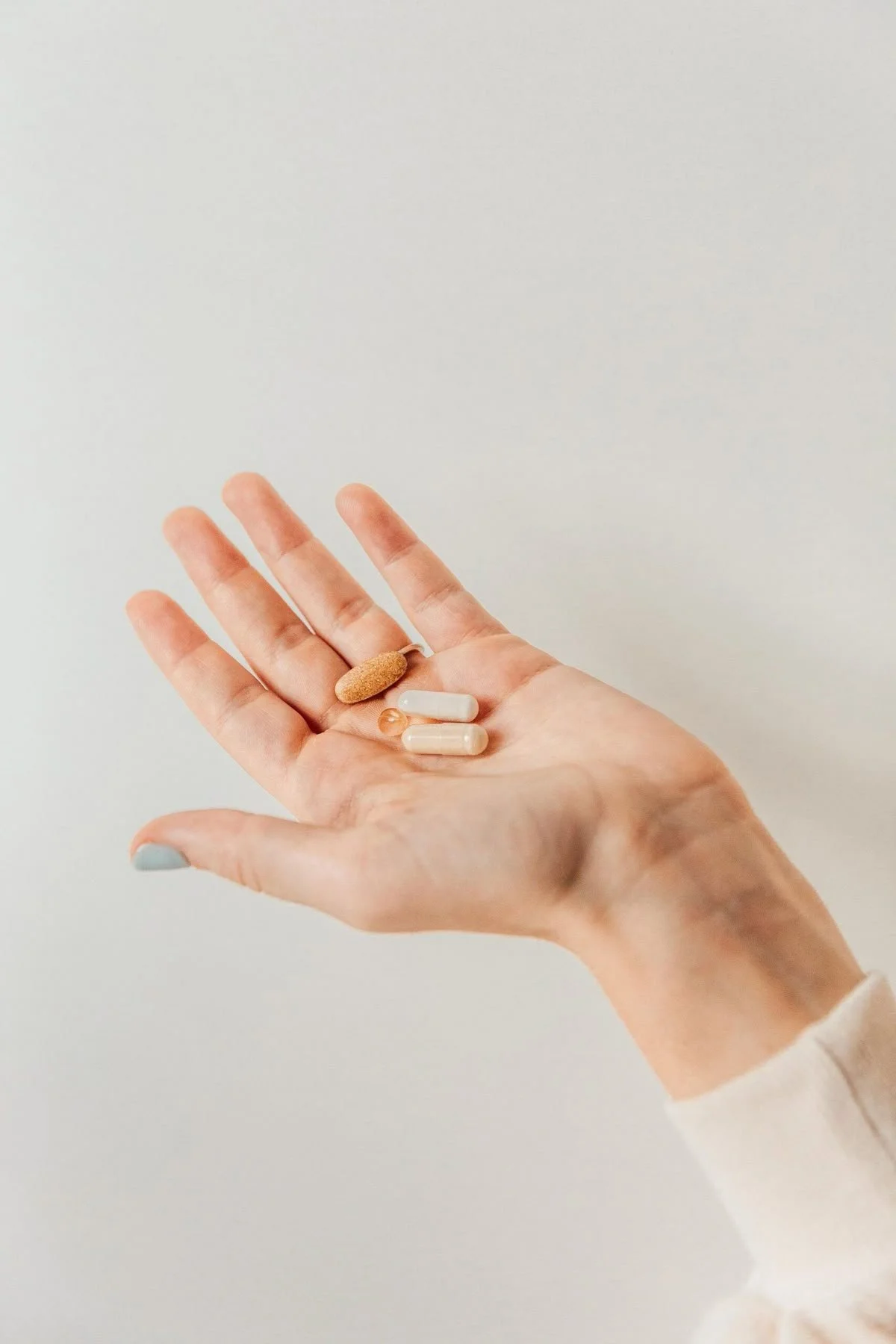5 Surprising Health Lessons I Learned from My Functional Medicine Doctor
Last year, I started seeing a Functional Medicine doctor.
I’d been dealing with mysterious symptoms for years. I’d seen multiple conventional doctors and specialists, had what felt like every test under the sun — but no one could tell me what was wrong. And I kept getting worse.
I’d been curious about Functional Medicine for a long time (I’d followed the work of Dr. Mark Hyman for years) but hadn’t taken the leap. Eventually, out of desperation — and hope — I booked an appointment at his clinic, The UltraWellness Center. It felt like a huge gamble. It was expensive, and there were no guarantees. But something in me told me to try.
So I went. And it ended up being one of the best things I’ve done for my health.
Some of what I learned shocked me. Some of it completely shifted how I think about my health. And while Functional Medicine is deeply personalized, there were a few big things that struck me as surprisingly universal — things I wish more people knew.
Here are a few:
1. Many of us are low in vitamin D — and it quietly affects more than we realize.
If you live in Canada (or anywhere without year-round sunshine), your vitamin D levels might not be where they need to be. One study found about 70% of Americans are either deficient or suboptimal — and those of us farther north are often in the same boat, if not more so.
What surprised me most wasn’t just how common this is, but how much vitamin D actually does. It supports your immune system, hormones, energy, mood, and even how your genes function. When levels are low, it can show up in subtle but frustrating ways — like brain fog, joint aches, low mood, or persistent fatigue.
One thing I appreciate about Functional Medicine is the focus on what’s optimal, not just what’s “not deficient.” For vitamin D, that usually means aiming for blood levels between 50–80 ng/mL — something I’d never even heard of before this.
There’s also a genetic factor I hadn’t known about. Some people (myself included) have a gene variant that makes it harder to activate vitamin D in the body. If that’s you — and there are a lot of us out there — you might need a little more to feel your best.
It’s surprising how something so simple can make such a meaningful difference.
Percentage of folks with the CYP2R1 A>G (rs10741657) – Genotype: GG variant (the one that makes it harder to activate vitamin D):
About 40–45% of those us us with African ancestry
About 30–35% of those us us with European ancestry
About 20–25% of those us us with East Asian ancestry
Resources:
➤ Is Your Vitamin D Deficiency Making You Sick?
➤ The Science Behind Vitamin D
➤ A 2022 review in Nutrients links low vitamin D to fatigue, depression, and immune challenges.
2. Magnesium is another quiet hero.
Magnesium supports over 600 processes in the body — from how your brain fires to how your heart keeps rhythm. It helps regulate mood, hormones, sleep, and blood sugar.
And most of us aren’t getting enough.
Stress, caffeine, alcohol, certain medications, even our food supply — they all quietly deplete our levels. I didn’t realize that you could have low magnesium without being clinically deficient, and it could still cause issues like anxiety, trouble sleeping, brain fog, or PMS.
Before Functional Medicine, magnesium had never once come up at any of my checkups. I’d never even had a conversation about nutrient deficiencies. But you can ask. And it’s worth finding out where you stand.
Resources:
➤ The Best Forms of Magnesium and When To Use Them
➤ This 2018 review explains how widespread magnesium deficiency is and how it affects stress, sleep, and more.
3. Omega-3s are more important than I knew.
Apparently, up to 80% of us are low in Omega-3s — and low levels have been linked to higher risk of early death. In fact, in some studies, the risk from low Omega-3s is on par with smoking.
They’re also one of the best-studied ways to reduce inflammation — the root of so many chronic issues, from joint pain to brain fog.
My doctor emphasized the importance of high-quality fish oil — with both EPA and DHA — and now I get why. It’s not just a wellness “extra.” It’s foundational.
Gentle tip: When choosing a fish oil supplement, look for one that contains both EPA and DHA, as both have unique benefits for reducing inflammation and supporting brain health. And be sure to choose a brand that prioritizes purity, free from contaminants like mercury.
Test I Had Done to Determine Omega-3 Levels: OmegaQuant’s Omega-3 Index Complete
Resources:
➤ A 2021 meta-analysis found omega-3 supplementation significantly reduced markers of inflammation.
➤ And this systematic review linked omega-3s to improved cardiovascular and cognitive health.
4. Food sensitivities are real — and sneaky.
This was a big one.
I had no idea how much certain foods were messing with me until I cut them out. I’m not talking about allergies, which are more obvious, but sensitivities — things that quietly create inflammation, fatigue, and a host of other issues.
For the record, and in my own defence, I’d tried cutting out the usual culprits — dairy, gluten, and sugar — before going to the UltraWellness Center. I’d generally last a couple of weeks but I’d eventually fall off the wagon. It wasn’t until my doctor recommended eliminating certain foods based on testing we’d done that I truly began to see the impact some foods were having on me.
Some of the Tests I Had Done:
Cyrex Array 4 - Gluten-Associated Cross-Reactive Foods & Foods Sensitivity
Cyrex Array 3X - Wheat/Gluten Proteome Reactivity & Autoimmunity
Cyrex Array 7X - Neurological Autoimmune Reactivity Screen - Expanded
Cyrex Array 2 Intestinal Antigenic Permeability Screen
Note: Some of these test are straight-up food sensitivity tests and others measure the effects sensitivities may have had on your brain/gut.
Resources:
➤ This 2020 review explains how non-IgE-mediated food sensitivities can cause chronic inflammation, GI distress, fatigue, and mood changes.
➤ Some functional practitioners use elimination diets as a starting point, supported by studies like this one on IBS and food triggers.
5. Our genes are not our destiny — but they’re full of clues.
My doctor had me take a genetic test, and it revealed a new level of insight into my health.
These tests are more than just a snapshot of our genetic makeup — they can uncover how our bodies metabolize key nutrients, how we process things like caffeine or estrogen, and even give clues about our predisposition to certain diseases. It’s like having a personal map of your health, helping you make more informed decisions about your diet, supplements, and lifestyle. Understanding how your genes interact with your environment can lead to more effective, personalized strategies for feeling your best.
Getting these test results was truly fascinating, and I still think about them every day.
The Test I Took: 3x4 Genetics - you don’t need a doctor to order one, by the way
Resources:
➤ A 2019 paper explains how nutrigenomics (how nutrition interacts with your genes) is changing personalized medicine.
➤ Another study on MTHFR variants highlights the importance of using active forms of folate (like methylfolate) for people with certain genetic mutations.
BONUS / One More Important Thing I Learned:
You can’t test your lifetime exposure to heavy metals with a blood test.
This one felt like a bit of a plot twist — especially because I ended up being diagnosed with lead toxicity. A pretty major case of it, too.
What I didn’t realize is that when it comes to heavy metals like lead or mercury, a standard blood test only shows what’s circulating in your body right now — not what’s been stored in your tissues over time. It’s essentially a snapshot of the past few months, but it doesn’t tell you anything about long-term exposure. That matters because some heavy metals get stored in your tissues. So if you had a significant exposure, say, last year, it likely wouldn’t show up on a blood test today.
To get a clearer picture, you need what's called a urine toxic metals test — also known as a provoked urine test or heavy metals panel. It’s done with the help of a chelator — a medication you take beforehand that draws stored metals out of your tissues so they can be measured in your urine.
The results can help uncover past exposure and guide next steps, whether that’s detox support or reducing further risk. For me, it was a critical missing piece — one I never would’ve uncovered through conventional testing alone.
The Test I Took: Urine Toxic Metals by Doctor’s Data
Important to Note: Most conventional doctors know next to nothing about lead toxicity. They don’t know how to recognize the symptoms, they don’t know how to diagnose it, interpret the test results of treat it.
I think and hope it will become more common to test and treat this but it currently is not so the best thing you can do is to inform yourself.
Resources:
➤ Heavy Metals and Health (a podcast episode featuring my doctor, Elizabeth Boham)
➤ This review on heavy metal toxicity explains that blood tests are only useful for recent exposure; long-term accumulation is often detected via hair or urine provocation testing.
I know all of this can feel like a lot. It’s overwhelming at times — confusing, expensive, and honestly kind of unfair. Unfair because so much of this information isn’t commonly shared in conventional healthcare settings. Unfair because it often takes privilege — time, money, access — to even begin asking the right questions or getting the right tests.
You might wonder: What’s the point of digging into all this? For me, the improvements to my quality of life and to my health have made it deeply worth it.
That said, I know that most people don’t have access to a Functional Medicine doctor — especially when cost is a barrier. It's a real and frustrating gap in our healthcare system.
Still, I believe there’s power in talking about this. In raising awareness. In asking better questions. And in collectively expecting more from our medical practitioners. My hope is that the more we share and advocate, the more accessible and commonplace this kind of deeper, more personalized care will become.
And just to be clear: I’m not a doctor, This isn’t medical advice. I’m simply sharing what I’ve learned because I think more people should know these things.







